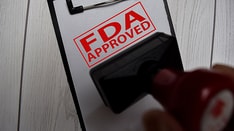Over the past decade, the US Food and Drug Administration (FDA) has approved new cancer drugs twice as fast as the European Medicines Agency (EMA), often using accelerated pathways, a new analysis shows.
Between 2010 and 2019, the FDA approved almost all oncology therapies ahead of the EMA. Drugs entered the US market about 8 months (241 days) before European market authorization.
But do quicker review times translate to wins for patients?
"The faster FDA approval process potentially provides earlier access to potentially life-prolonging medications for patients with cancer in the US," Ali Raza Khaki, MD, Department of Oncology, Stanford University School of Medicine, California, told Medscape Medical News. "On the surface, this is a good thing. However, it comes with limitations."
Earlier drug approval often means greater uncertainty about an agent's benefit — most notably, whether it will improve a patient's survival or quality of life. Khaki pointed to a 2019 study published in JAMA Internal Medicine that found that only 19 of 93 (20%) cancer drugs that had been recently approved through the FDA's accelerated approval pathway demonstrated an improvement in overall survival.
In the new study, published online June 10 in JAMA Network Open, Khaki and colleagues found that among the 89 cancer drugs approved in the US and Europe between January 2010 and December 2019, the FDA approved 85 (95%) before European authorization and four (5%) after.
The researchers found that the median FDA review time was half that of the EMA's (200 vs 426 days). Furthermore, 64 new drug applications (72%) were submitted to the FDA first, compared with 21 (23%) to the EMA.
Of the drugs approved through an accelerated pathway, three were ultimately pulled from the US market, compared with one in Europe.
"These early drug approvals that later lead to withdrawal expose many more patients to toxicity, including financial toxicity, given the high cost of cancer medications," Khaki commented.
In addition, 35 oncology therapies (39%) were approved by the FDA before trial results were published, compared with only eight (9%) by the EMA. Although FDA drug labels contain some information about efficacy and toxicity, scientific publications often have much more, including details about study populations and toxicities.
"Without this information, providers may be limited in their knowledge about patient selection, clinical benefit, and optimal toxicity management," Khaki said.
Jeff Allen PhD, president and CEO of the nonprofit Friends of Cancer Research, who wasn't involved in the study, believes that an FDA approval before publication shouldn't be "particularly concerning."
"Peer-reviewed publication is an important component of validating and communicating scientific findings, but the processes and time lines for individual journals can be highly variable," he said. "I don't think we would want to see a situation where potential beneficial treatments are held up due to unrelated publication processes."
The author of an invited commentary in JAMA Network Open had a different take on the study findings.
"A tempting interpretation" of this study is that the FDA is a "superior agency for expedited review times that bring cancer drugs to patients earlier," Kristina Jenei, BSN, MSc, with the University of British Columbia School of Population and Public Health, writes. In addition, the fact that more drugs were pulled from the market after approval in the US than in Europe could be interpreted to mean that the system is working as it should.
Although the speed of FDA reviews and the number of subsequent approvals have increased over time, the proportion of cancer drugs that improve survival has declined. In addition, because the FDA's follow-up of postmarketing studies has been "inconsistent," a substantial number of cancer drugs that were approved through accelerated pathways have remained on the market for years without confirmation of their benefit.
Although regulatory agencies must balance earlier patient access to novel treatments with evidence that the therapies are effective and safe, "faster review times and approvals are not cause for celebration; better patient outcomes are," Jenei write. "In other words, quality over quantity."
The study was supported by the National Cancer Institute. Khaki reported stock ownership from Merck and stock ownership from Sanofi outside the submitted work. Allen and Jenei have disclsoed no relevant financial relationships.
JAMA Netw Open. Published online June 10, 2022. Full text, Commentary
For more news, follow Medscape on Facebook, Twitter, Instagram, and YouTube.
Credits:
Lead image: Dreamstime
Medscape Medical News © 2022
Cite this: Megan Brooks. FDA Okays Cancer Drugs Faster Than EMA. But at What Cost? - Medscape - Jun 20, 2022.





Comments